New Scientist covers the latest developments in science and technology that will impact your world. New Scientist employs and commissions the best writers in their fields from all over the world. Our editorial team provide cutting-edge news, award-winning features and reports, written in concise and clear language that puts discoveries and advances in the context of everyday life today and in the future.
Elsewhere on New Scientist
A promising puck • Claims of a superconductor breakthrough could lead to progress, even if they are wrong
New Scientist International Edition
Antics of young stars seen by JWST
Babylonian arson uncovered • By analysing the charred remains of a building in Jerusalem, archaeologists have revealed details of how it was burned by Babylonian invaders in 586 BC, finds Michael Marshall
Women may age fastest when they are in their 30s and 50s
Nightingales match their rivals’ pitch during singing duels
Scepticism over superconductor • Claims of a breakthrough in creating a material that perfectly conducts electricity at room temperature and pressure are attracting scrutiny, finds Karmela Padavic-Callaghan
We may finally know how galaxy-scale magnetic fields arise
Indo-European languages traced back 8000 years
Analysis Hydrogen fuel • Is geologic hydrogen a green energy solution? Plans to extract hydrogen from underground reservoirs have been presented as climate-friendly, but it is unclear how much they could increase global warming, says Michael Le Page
How cancer-fighting immune cells could be made safer and more powerful
People pass swine flu to pigs more than the other way round
Mathematicians find 27 tickets that guarantee UK National Lottery win
Supersonic cracks seem to be breaking the laws of physics
Young blood extends lives of mice • Old mice that are surgically attached to young ones have now been shown to live longer, as well as having their organs rejuvenated, discovers Alice Klein
Start of spring in the Arctic is increasingly unpredictable
Metallic shirt could let medical implants communicate
Ancient make-up found in tomb • Residues found in a 2000-year-old tomb in China hint that use of cosmetics was widespread
Water vapour spotted in young planetary system
Building with wood may not be as climate-friendly as thought
Daily aspirin raises risk of brain bleeds for little benefit
Gas gives stars an innate twinkle
Legalisation hikes cannabis poisonings
Lizards put less effort into courting when it gets hot
Really brief
A question of bias • Even when faced with hard evidence, why did whole scientific communities reject world-changing hypotheses, asks Dan Levitt
This changes everything • On strike against AI The threat of artificial intelligence-authored content hangs over many creative industries. Actors and writers need to push back against automation, says Annalee Newitz
Ready for take off
Your letters
Let’s talk it through • Conversation is so essential to our world, yet we take it for granted. Teasing its workings apart makes for a surprising and intriguing read, finds Tom Tierney
Into the deep • There is still much to discover in the ocean’s depths, as George Bass discovers in a gripping book
New Scientist recommends
The TV column • Watch this space Foundation, drawn from Isaac Asimov’s novels, is set in a world where an empire ruled by clones is under threat. Can the new season avoid fizzling out like Game of Thrones, asks an anxious Bethan Ackerley
If space-time never forgets • The hunt for subtle signs of gravitational memory could unveil a cosmos saturated by symmetry and a new theory of gravity, finds Abigail...

 Oct 12 2024
Oct 12 2024
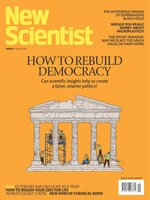 Oct 05 2024
Oct 05 2024
 Sep 28 2024
Sep 28 2024
 Sep 21 2024
Sep 21 2024
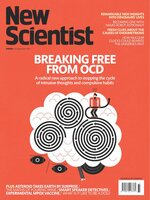 Sep 14 2024
Sep 14 2024
 Sep 07 2024
Sep 07 2024
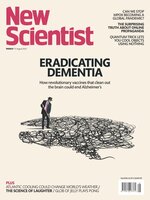 Aug 31 2024
Aug 31 2024
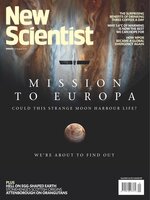 Aug 24 2024
Aug 24 2024
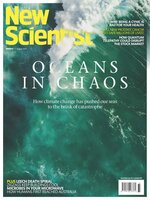 Aug 17 2024
Aug 17 2024
 Aug 10 2024
Aug 10 2024
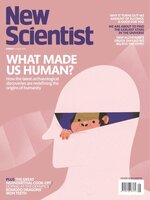 Aug 03 2024
Aug 03 2024
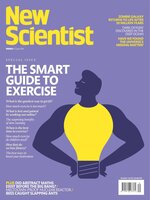 Jul 27 2024
Jul 27 2024
 Jul 20 2024
Jul 20 2024
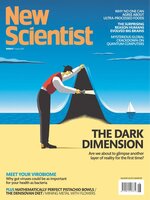 Jul 13 2024
Jul 13 2024
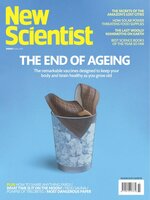 Jul 06 2024
Jul 06 2024
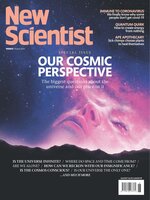 Jun 29 2024
Jun 29 2024
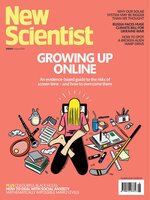 Jun 22 2024
Jun 22 2024
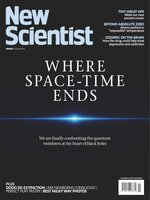 Jun 15 2024
Jun 15 2024
 Jun 08 2024
Jun 08 2024
 Jun 01 2024
Jun 01 2024
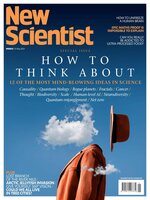 May 25 2024
May 25 2024
 May 18 2024
May 18 2024
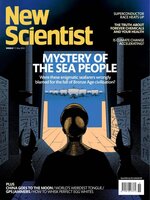 May 11 2024
May 11 2024
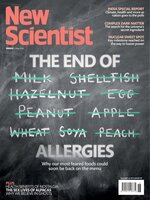 May 04 2024
May 04 2024
